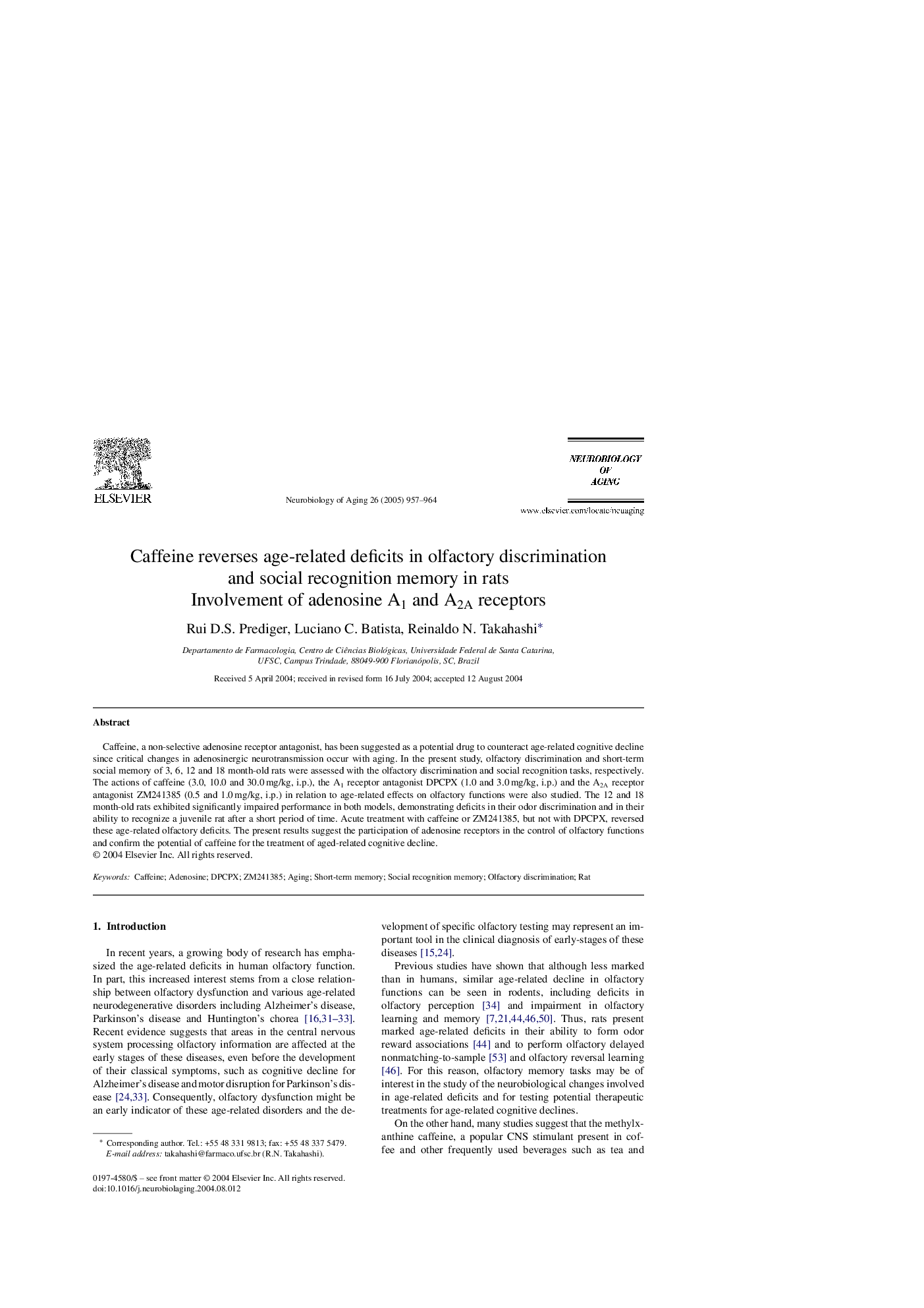| Article ID | Journal | Published Year | Pages | File Type |
|---|---|---|---|---|
| 9645088 | Neurobiology of Aging | 2005 | 8 Pages |
Abstract
Caffeine, a non-selective adenosine receptor antagonist, has been suggested as a potential drug to counteract age-related cognitive decline since critical changes in adenosinergic neurotransmission occur with aging. In the present study, olfactory discrimination and short-term social memory of 3, 6, 12 and 18 month-old rats were assessed with the olfactory discrimination and social recognition tasks, respectively. The actions of caffeine (3.0, 10.0 and 30.0Â mg/kg, i.p.), the A1 receptor antagonist DPCPX (1.0 and 3.0Â mg/kg, i.p.) and the A2A receptor antagonist ZM241385 (0.5 and 1.0Â mg/kg, i.p.) in relation to age-related effects on olfactory functions were also studied. The 12 and 18 month-old rats exhibited significantly impaired performance in both models, demonstrating deficits in their odor discrimination and in their ability to recognize a juvenile rat after a short period of time. Acute treatment with caffeine or ZM241385, but not with DPCPX, reversed these age-related olfactory deficits. The present results suggest the participation of adenosine receptors in the control of olfactory functions and confirm the potential of caffeine for the treatment of aged-related cognitive decline.
Keywords
Related Topics
Life Sciences
Biochemistry, Genetics and Molecular Biology
Ageing
Authors
Rui D.S. Prediger, Luciano C. Batista, Reinaldo N. Takahashi,
